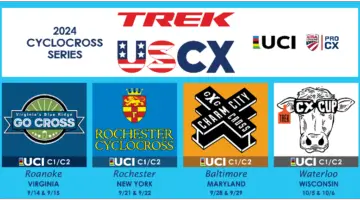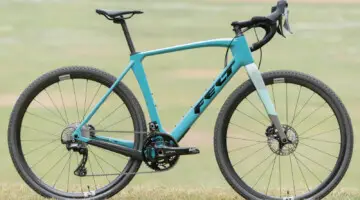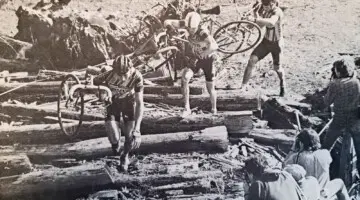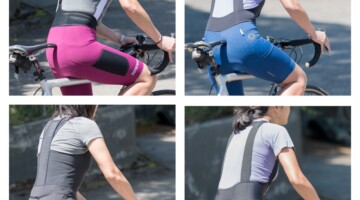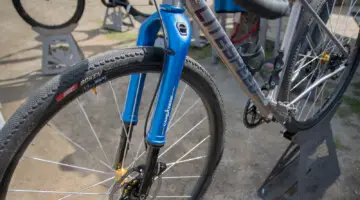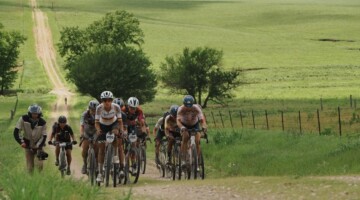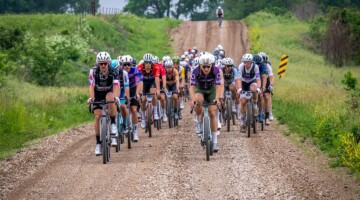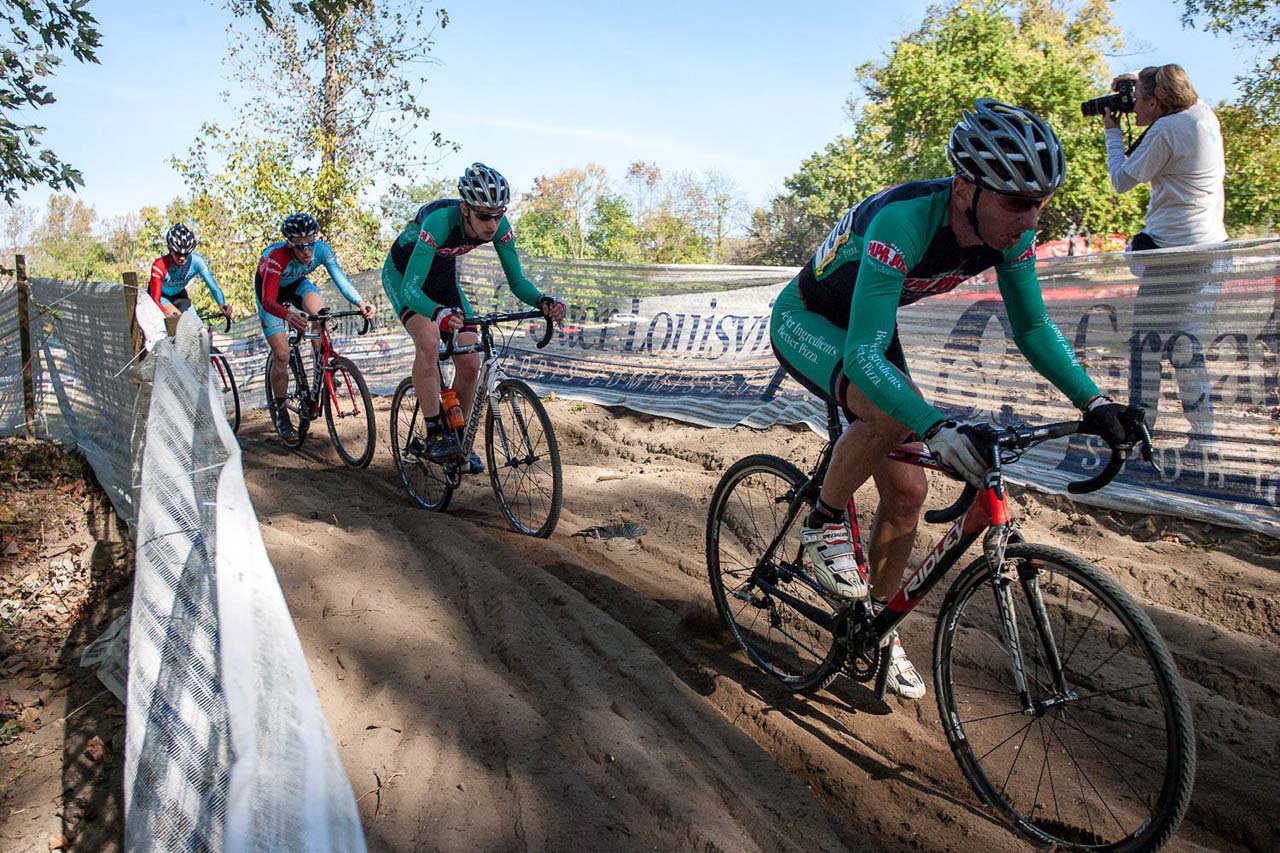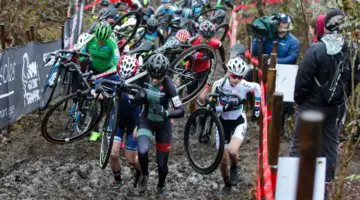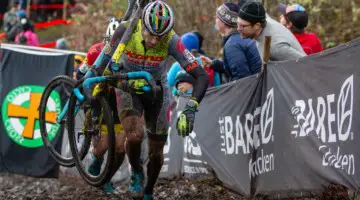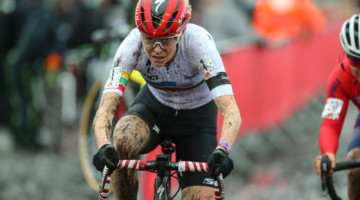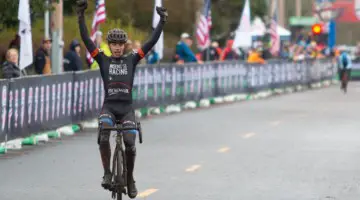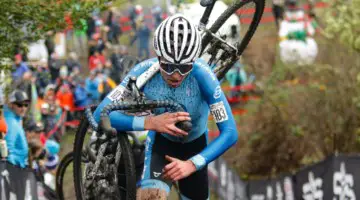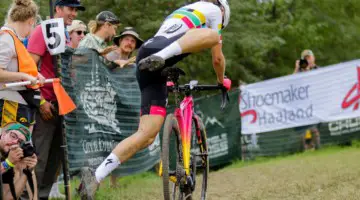A few weeks ago, Ohio Valley Cyclocross (OVCX) announced the cancellation of the entire series for 2020. While the news is certainly huge for racers throughout the midwest who participate in one of the United States’ largest cyclocross series, it comes at a time when cases of COVID-19 are rising rapidly – especially in the geographic heart of the series, Cincinnati, Ohio.
The news also comes on the heels of a similar announcement from the Chicago Cyclocross Cup, which brings into question the likelihood of USA Cycling Nationals in the Windy City later this year.
Although the series, which contains two UCI-level events, has been canceled, the pro races themselves are yet to make a decision at the time of this interview (Kings CX is now canceled). We reached out to Ryan Gamm, one of the directors of OVCX, to learn more about the decision process.
Cyclocross Magazine: OVCX as a series is canceled for 2020. How did you make the decision?
Ryan Gamm: The OVCX is organized by a board that includes Kari Hutson, James O’Loughlin, and me. We have been keeping a close eye on how things have been progressing with the pandemic and frankly, holding off to make any decisions as long as possible. In recent weeks we saw that things were potentially not trending favorably. Around the same time, we saw that the Chicago Cross Cup had made the call to cancel their series due to the specific guidelines from the Illinois Department of Health. We took that as a cue to check in with our race promoters and see what those parties were thinking.
We found that the overwhelming majority of our event promoters were either unable or unwilling to put on races this fall. However, it should be noted that the two UCI events that are part of the OVCX series are still TBD. [Ed. note: Kings CX is now canceled.]
I think a bit of context here might be helpful. First, most of our events take place in public parks. It seems that many parks that are progressive enough to allow 300+ racers to run amuck for a weekend are also progressive enough to ban large public events in the face of a pandemic. Second, many of our events have been taking place at the same venues for 10 or even 20+ years. Promoters don’t want to stress those well-established relationships. Third, even a large regional series like the OVCX has events that run on tight budgets. Even on good years, sometimes promoters don’t break even. The added uncertainty of our present circumstances only exacerbates those concerns. Finally, the OVCX takes place across three states and a reasonably large geographic area. Concerns have been expressed regarding safety and public health, with specific consideration given to a gathering that would bring together several hundred folks from different regions.
CXM: How do you think a year off will impact the health of the scene when the crisis has passed?
RG: I don’t think there is any reason to suspect that there will be a negative impact on participation. I have the privilege of wearing a number of hats: racer, coach, event promoter, series board member, and team director. I am frequently in communication with a number of folks representing a good cross-section of our regional cyclocross community, and it’s clear that people are still really engaged. Folks are riding their bikes more now than ever, they are excited to race again when it becomes possible, they miss their cycling community and friends. Many, many people have had their lives tremendously disrupted by the pandemic: daily routines, social lives, compromised economic or physical security, being furloughed or outright unemployment, and taking care of children or relatives, just to name a few. People are reassessing their values and needs. Cycling is a lifestyle sport: a return to racing next fall will not only be a return to normalcy but also a return to some of the most positive parts of folks’ lives.
Furthermore, we know that this is an unprecedented time for bicycle sales and getting people out on bikes. Couple that with the knowledge that the cyclocross ecosystems works better for everyone when there are more people involved – this can lead to better and more stable events, more support from inside and outside the industry, and greater potential for media and TV coverage. We have a once-in-a-lifetime opportunity to welcome some new riders to our sport while simultaneously helping improve it.
CXM: How has the response been from sponsors, promoters, and racers?
RG: Positive. The pandemic is a rare cultural occurrence where nearly everyone is affected in some way. In some cases, the impacts are profound, life-changing, and/or life-threatening. It’s pretty clear that most folks believe that racing will return and that there are more important things happening right now. That said, people are bummed. And those two feelings are allowed to coexist. You can completely understand that having racing mostly on hold for 2020 is the right thing to do, but still be bummed out about it.
CXM: With no, or substantially fewer, races being held, how will riders with hopes for Nationals gather points?
RG: That is a great question. When USA Cycling first started providing correspondence about the pandemic, they were very quick to mention a concern with regards to equity in opportunities to prepare for and participate in nationals. It will be interesting to see how USA Cycling responds. However, a simple adjustment to the ranking algorithm that does not penalize athletes for not racing, or racing very little, in the past 12 months would be easy to do and solve at least part of the problem.
CXM: Do you expect there will be a National Championship this year?
RG: From my understanding, if Nationals were to take place in Chicago this year as planned, the Illinois Department of Health would require a significant change in the current situation with the virus, such as a vaccine. At this point, it’s hard to say if that is plausible prior to December. A vaccine would also need to be in place far enough in advance that the planning and logistics for nationals could take place. With that in mind, it seems far less likely. With respect to the financial model, USA Cycling has developed for Nationals, it is also hard to imagine a different location being found on such short notice, especially with the furloughs they announced. That said, I truly hope my assessment is wrong, that a vaccine is quickly found and distributed, and I hope to see you all at Cyclocross Nationals this year. My wife, Rachel Rubin, and I will be the short folks in panda costumes.
CXM: You also host a 200k gravel race, which has been converted to a Strava event. Could you outline how that concept works and how you decided to hold the event that way?
RG: We looked into the logistics of holding the event and all possible options to hold it as a mass start, and there was absolutely no way to do it responsibly. We then reassessed as time trial format and there were still big risks. I had planned to cancel the event but in a conversation with Kari Hutson, she suggested I look at the format used by the Headwind Cycling team for their BBRE (Best Bike Race Ever). They took a creative approach and made a 21 stage event comprised from grouped Strava segments around Columbus, OH. A great format for that area.
I wanted to make the best use of what we had available for our gravel event, the Red Kite Ronde. Ultimately, that meant removing some of the more unorthodox and adventurous features on the course (such as a hip-deep river crossing) for safety reasons because there is little phone service and folks may be doing it alone. That allowed us to set it up as an FKT (fastest known time) event. I find that format very compelling and would love to see it embraced a bit more by the cycling world like it is in running/hiking/climbing, and other disciplines. As the name implies, it is simply taking on a monumental route as fast as possible. With cycling, you can make the argument that weather and conditions play a role and make it less valid. I argue that those are variables that you can try to work to your advantage and become part of the strategy.
The format has allowed us to set it up with a very small entry fee, which we will be donating to two different non-profits. Since it is not a mass start, we have included some fun categories, such as “e-bike” and “derny duo” (one rider on an e-bike and one human-powered bike). I dearly hope someone takes us up on the derny category and hopefully does not die.
CXM: As a coach, you have likely heard from a lot of frustrated riders. What would you tell everyone who is feeling down knowing that racing will not resume this fall?
RG: I absolutely do not want to minimize the pandemic: over 100,000 people have died [in the USA], many more have been very sick, many folks have lost jobs or been furloughed, and people are experiencing immeasurable fear and stress.
However, this is also a gap year for a lot of us. A chance to reset or take care of things that have been put off. I don’t mean that in the warm fuzzy abstract sense. I work with, and have worked with, many folks whose limiting factor as an athlete is life stress. I’ve worked with many others who have unattended or complex biomechanical issues, injuries that were never fully addressed, allergies, or very problematic gaps in fitness.
Contrary to popular belief, racing and racing a lot does not help you develop fitness when thinking strictly from a physiological standpoint, with the exception of some road events. I know many folks, especially advanced and elite athletes, who feel the need to race so much that they, in fact, inhibit their own athletic development and/or don’t put in the time to fix any number of the issues listed above.
If you are ambitious, 2020 is the year to fix those problems: address the limiting factors that haven’t been addressed, build the fitness that you haven’t had the patience or self-discipline to do because you were distracted by racing. There is enough time to produce real change. Turn the problem into an opportunity. Domestic pro racing is going to be absolutely fascinating in 2021. There will be some relative unknowns who breakthrough and some long-standing top athletes falling behind.
For those who don’t care if they ever upgrade another race category; my advice is to have a great time riding your bike, do some adventuring, ride for health, wellbeing, fitness, and fun. Set some non-racing goals and work on them at your own pace. You might accidentally get a lot faster.
As of July 1, Cincinnati Cyclocross nor Marian University have made a public statement regarding their UCI events. Julie Herrmann, director of the Cincinnati Cyclocross weekend, issued the following statement, however.
“While OVCX has announced canceling the series for 2020, at this point we have not made a decision for our race in October. We are watching and learning and will make an announcement before the end of July. Our decision will be first and foremost based on our ability to safely put on a race.”
On July 8, organizers came to a decision.
“Dear Cyclocross Family,
It is with heavy hearts that the team at Cincinnati Cyclocross has decided to cancel the 2020 edition of Kings CX. Similar to many races around the country we feel that it is not possible to put on our race in a way that keeps our beloved racers, volunteers and spectators safe while also maintaining the same spirit of fun, community and intense competition that has defined our race in the past. We will take some time to mourn the loss of racing in 2020, but then promise to come back better than ever! We will miss our CX family dearly over this time and wish you all good health until we see each other again!”





